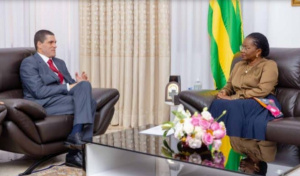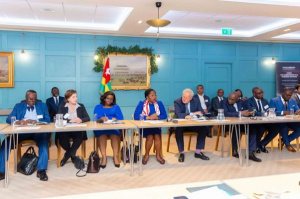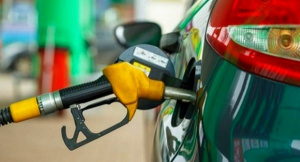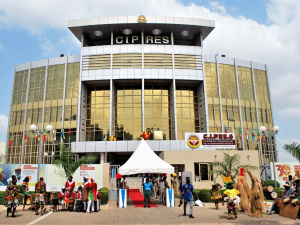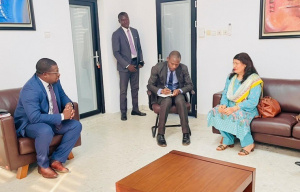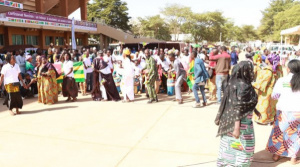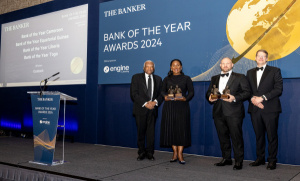Togo First
BB Lomé: New MD, Diogo Victoria, Reiterates Brewer’s Support to Togo’s Development
BB Lomé will continue supporting Togo’s economic and socioeconomic growth. Diogo Victoria, the brewer’s new Managing Director, reaffirmed this commitment on December 10 in a meeting with Togolese Prime Minister Victoire Tomégah-Dogbé.
Victoria told the PM about ongoing projects backed by BB Lomé, including a project to use local rice to make beverages. “We have developed a whole body of work around local rice, which contributes to our products and the local economy,” he told Tomegah-Dogbé.
Beyond its commercial pursuits, BB Lomé wants to remain a key economic player and continue fostering job creation in Togo. According to Diogo Victoria, it is important to identify new projects that can produce added value for Togo. “The brewery is not only concerned about growing, but also contributing to the growth of the environment where it operates,” he said.
Diogo Victoria succeeds Thierry Feraud, who led BB Lomé for eight years. The brewery, a subsidiary of the French Castel Group, has been a significant player in Togo for 60 years and is recognized as one of the country's largest companies and tax contributors.
Ayi Renaud Dossavi
Togo Courts Commonwealth’s Investors in London
Now more than ever Togo is determined to win over Commonwealth investors. Last week, Prime Minister Victoire Tomegah-Dogbe led a delegation to London for this purpose. They attended a business-focused roundtable organized by the Commonwealth Enterprise and Investment Council (CWEIC).
During the meeting, PM Tomégah-Dogbe outlined Togo's strategic roadmap, Togo 2025, emphasizing key infrastructure projects such as ports and airports, alongside the Plateforme industrielle d'Adétikopé (PIA). She presented the projects as major catalysts for economic growth and industrial transformation in Togo.
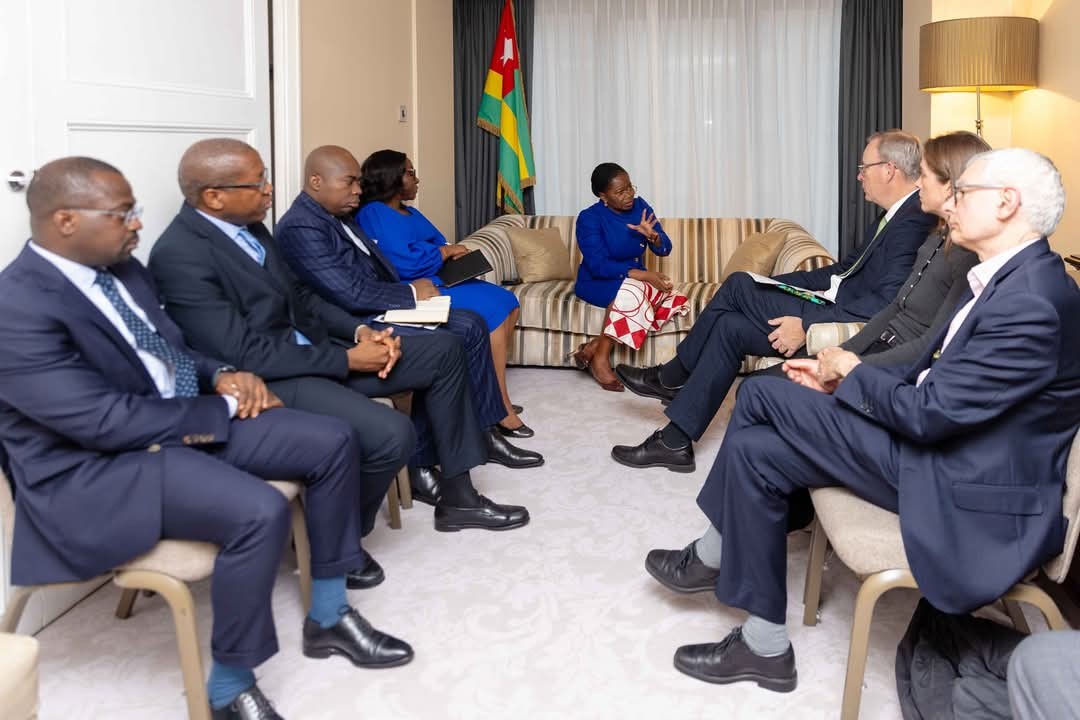
The discussions also highlighted Togo's preferred financing methods, including public-private partnerships (PPPs), concessionary funds, and joint ventures.
Read Also: Togo Hosts New Bristish Investors Mission
In her appeal to potential investors, the Togolese Prime Minister underscored the necessity of building partnerships founded on trust and mutual prosperity. "We are ready to work hand in hand to turn opportunities into success," she stated, reaffirming Togo's commitment to becoming a prime investment destination.
Pride Azefor, CWEIC's director of trade and investment, noted that several British investors are already eager to invest in Togo, a country "full of opportunities" according to Azefor.
On the sidelines of the recent roundtable, the Togolese delegation met representatives from UK Export Finance, DMA Invest, and British International Investment. The meetings aimed to pave the way for tangible partnerships to support Togo's key projects.
Esaïe Edoh
Togo: Petroleum Prices Reduced in Line with Global Dynamics
Petroleum products cost slightly less in Togo since December 10. Gasoil dropped from CFA775 to CFA695 per liter, down CFA80. Super unleaded, mostly used by vehicles, dropped by CFA20 per liter, from CFA700 to CFA680.
The prices were revised in line with an interministerial decree issued on December 9. The Ministries of Trade, Energy, and Transport signed the decree.
The order also indicates that the price of the 2-stroke mixture, primarily used for small-capacity engines, drops from CFA788 FCFA to CFA769, a reduction of CFA19. However, the price of kerosene is the same–CFA650 per liter.
This change marks the first alteration in petroleum product prices in two years; the current rates have been stable since their introduction during a previous increase. The adjustment aligns with a global trend of declining petroleum product prices. As of last week, Brent crude was valued at $71 per barrel, despite OPEC+'s decision to delay an anticipated production increase for three months.
Esaïe Edoh
Social Protection: Lomé Hosted 37th Session of Council of Ministers of Inter-African Conference on Social Security (CIPRES)
Lomé just hosted the 37th ordinary session of the Council of Ministers of the Inter-African Conference on Social Security (CIPRES). The program took place on December 9 and 10. It gathered officials and social welfare experts from 18 African countries.
The talks focused on tackling Africa’s significant challenges in social protection systems. The primary goal was to improve the mobilization of sustainable funds to support social protection projects.
Participants assessed structural challenges and drew recommendations for African leaders to make life better for their people.
The forum took place as Togo ramps up efforts to boost social coverage. Since January 2024, Lomé has been implementing a Universal Health Insurance (UHI) program designed to ensure equitable healthcare access for all citizens, irrespective of their socioeconomic status.
This initiative aligns with a broader global movement to break financial barriers that hinder access to medical services, particularly for disadvantaged populations.
Togo: New Industrial Investments at CFA196 Billion at End-September 2024
Togo reported new investments totaling CFA196.29 billion at the end of September 2024. According to official sources, the amount was generated by 31 new companies, comprising 19 registered under the investment code regime and 12 operating within free zones.
A Significant Distribution of Investments
The breakdown of these investments reveals that a substantial 81% (CFA159 billion) was allocated under the investment code, while activities in free zones accounted for the remaining 19% (CFA37 billion). These investments are projected to create approximately 3,700 jobs, with nearly one-third of these positions located in free zones.
Key Target Sectors
Among the sectors attracting investment under the investment code, agri-food leads with 38% of the financing, followed by industrial plastics processing at 27%, livestock farming at 16%, motorized machinery assembly at 11%, and construction equipment at 8%. In the free trade zone, agro-industrial processing dominates at 28%, with plastics processing at 19% and garment manufacturing at 17%. Other sectors such as paper production, energy, and medical or IT equipment assembling account for 9%, each.
Foreign Investment Dynamics
Foreign capital plays a crucial role in Togo's investment landscape, particularly within the free zone, where 66% of companies are owned by investors from India, Lebanon, and China. Under the investment code regime, foreign ownership stands at 52%, including significant participation from French and Beninese partners.
Ayi Renaud Dossavi
CCI-Togo and Pakistan Forge New Economic Pathways
The Chamber of Commerce and Industry of Togo (CCI-Togo) hosted Farhat Ayesha, the High Commissioner of Pakistan to Ghana, on December 3, 2024. The meeting aimed to enhance economic cooperation between Togo and Pakistan.
The discussions focused on key sectors including agriculture, infrastructure, hotels, tourism, health, and the textile industry. Péyébinesso Limazie, the Commissioner responsible for the Services Sector at CCI-Togo, outlined key flagship projects planned to invigorate these sectors over the next five years.
High Commissioner Ayesha emphasized Pakistan's interest in Togolese cotton and ambition to deepen trade in the agricultural and textile sectors. Pakistan has great expertise in these sectors.
If effective, the collaboration could yield a formal agreement between the chambers of commerce of both countries. It could also lead to bilateral economic missions for greater trade.
Thanks to scholarships from Islamabad, Togo is already active in the health sector, which could catalyze renewed momentum in Togo-Pakistan relations. This growing collaboration may foster further advancements in health initiatives and other sectors.
Both parties identified simplifying trade and consular procedures as a priority to facilitate smoother economic interactions, according to statements from CCI-Togo.
Togo: High Commission for Reconciliation and the Strengthening of National Unity Wants to Rename Streets and Public Squares
The Togolese High Commission for Reconciliation and the Strengthening of National Unity (HCRRUN) is renaming several streets and public squares in the country. The project kicked off on December 10, 2024, in Lomé. It is part of efforts to provide memorial reparations.
The goal is to honor significant but overlooked historical figures and to redefine important dates in Togo's socio-political history from 1958 to 2005.
An upcoming list of names and important dates is being assembled.
Over three days, various stakeholders including government officials, local leaders, and civil society representatives will collaborate to create a consensus list of individuals and events to commemorate.
For Awa Nana-Daboya, President of the HCRRUN, the project follows the recommendations of the Truth, Justice and Reconciliation Commission (CVJR).
Among others, the CVJR suggested repatriating Sylvanus Olympio's remains to Togo for burial. Olympio is viewed as the father of the nation.
Nana-Daboya pointed out: “The CVJR's recommendation is to transfer the remains because the late Sylvanus Olympio belongs to Togo”.
Parallel efforts for financial and memorial compensation
Additionally, HCRRUN has compensated nearly 30,000 victims of political violence since its inception. The current phase aims to establish a unified collective memory. Nana-Daboya stated, “Future generations must read Togo's history and find the names of figures like Tavio Amorin engraved on steles.”
Ayi Renaud Dossavi
Togo Revenue Office (OTR) to Auction Over 3,000 Lots Including Cars
The Togolese Revenue Office (OTR) is holding a public auction of 3,425 lots, which includes 41 used cars, 16 tricycles, and 27 motorcycles. The auction takes place today, December 12, at the Special Customs Intervention Unit (USID) locations in Ségbé and Tsévié.
This event is open to the public but comes with specific conditions. Bids will go to the highest bidder, with cash payments required plus an additional 12% for immediate removal of items. Participants must also pay a non-refundable registration fee of CFA5,000 to the Litigation Division of the Intelligence and Anti-Fraud Department.
The ongoing auction aims to optimize the management of goods seized by Togolese tax authorities and generate revenue for the State. It also provides an opportunity for buyers to acquire goods at competitive prices.
Ayi Renaud Dossavi
SAFEM 2024: In Niamey, 50 Togolese Craftswomen Showcase their Skills and Works
Togo is the guest of honor at the 13th International Crafts Fair for Women (SAFEM) taking place in Niamey, Niger. A delegation of about fifty Togolese craftswomen, led by Professor Kossivi Hounake, the Minister Delegate to the Minister of Trade, Crafts, and Local Consumption, represents the country at the event.
The Togolese delegation has showcased cultural performances featuring traditional dances such as Bobobo, Simpa, and Kamou, and typical Togolese dishes highlighting the country's culinary diversity.
This event serves as a platform to promote Togolese crafts. Professor Kossivi Hounake noted that “handicrafts in Togo involve around one million people across 166 trades organized into eight professional branches.”
Togo’s craft sector is structured through 44 local chambers, six regional Chambers of Crafts (CRM), and a national organization called the Union of Regional Chambers of Trade (UCRM). Togo owes the place of guest of honor to its efforts to promote crafts and empower women in this field.
In 2023, for example, Togo dedicated the Togo International Handicraft Market (MIATO) to women's crafts under the theme “Crafts in the era of women's empowerment and digital.”
SAFEM 2024, which runs until December 15, provides an important platform for enhancing collaboration among craft sector participants, showcasing innovations, and fostering regional partnerships.
Esaïe Edoh
Ecobank Togo Wins "Bank of the Year" Award for Fifth Consecutive Year
Ecobank Togo has won the African “Bank of the Year” Award, for the fifth consecutive year. The lender grabbed the title on December 4 at The Banker 2024 Awards in London. The group’s subsidiaries in Cameroon, Equatorial Guinea, and Liberia also received the title.
Ecobank said the award highlights its commitment to providing solutions that meet market needs. “These awards recognize our intense focus on continuously improving the value of the products and solutions we offer our customers. They also underscore our ongoing efforts to deliver a better customer experience at every touchpoint across our 35 countries in Sub-Saharan Africa,” stated Ecobank Group Chief Executive Officer Jeremy Awori.
The Banker, a British magazine, awarded Ecobank the title based on diverse criteria, including financial performance, strategic use of technology, innovative initiatives, and contributions to sustainable development.
The Bank of the Year Awards are among the most prestigious honors in the global banking industry. They cover over 120 countries and recognize institutions that excel in their local markets through outstanding performance and innovative strategies; and institutions that contribute to economic and social development.
Esaïe Edoh

